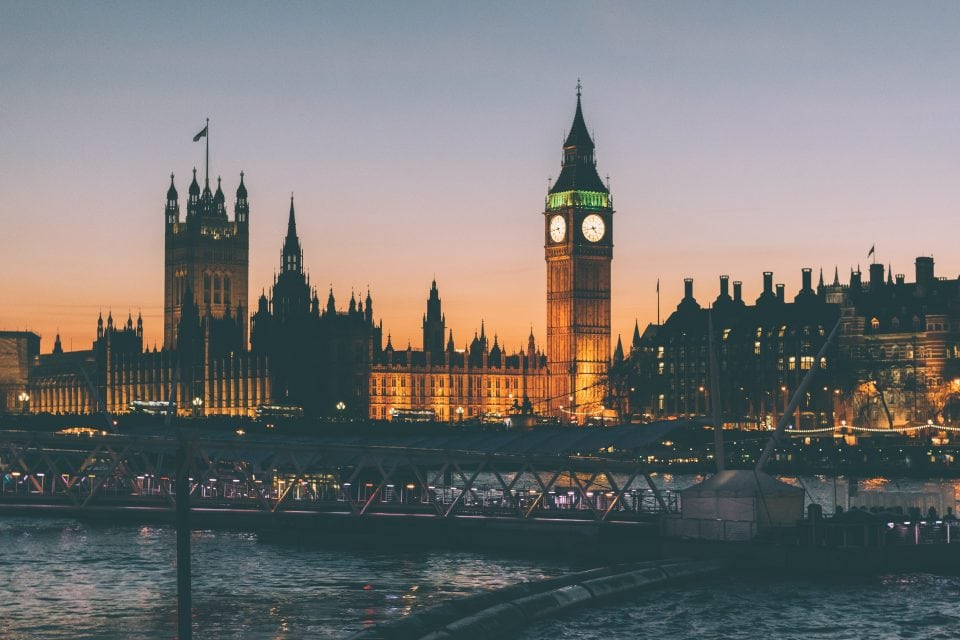ISSN: 2736-6065
Blog Post by Irina von Wiese, former LibDem MEP
London Calling is the European Liberal Forum’s column aimed at bridging the Channel.
Alas, it wasn’t coming home to England. Football, that is – but a number of world leaders did, to lesser acclaim. Among them the G7 Heads of States in June and Angela Merkel in July.
On the surface, all looked fine: U.S. credibility restored, the Queen composed as ever, and the Cornish sea deceptively turquoise (Boris Johnson the only leader mad enough to take a dip). Afterwards, the Government proclaimed that progress had been made on all fronts: Covid vaccinations (1bn donations to developing countries), coordination with the EU vis-à-vis Russia, China and assorted dictatorships like Myanmar and Belarus, joint action to re-kindle the JCPOA with Iran, and great expectations in November’s COP26 in Glasgow.
Like the sea, it was a bit more frosty under the surface.
On day one, much to Johnson’s dismay, President Biden brought up the situation in Northern Ireland. Biden is of Irish heritage and, unlike his predecessor, not a proponent of Brexit. He does understand that the stand-off there between Unionists and Nationalists was triggered by Brexit and the Northern Ireland protocol (see London Calling 19), and that the latter was designed to protect the 1998 Good Friday Peace Agreement. He also understands the wider issue here: the credibility of his own and his allies’ words in the watchful eyes of the rest of the world.
Pitching what used to be known as the Western or Free World, now better described as Liberal Democracies, against the Illiberal Autocracies of Russia and China, Biden desperately needs to keep his own ducks in a row. After four years of chaos, the United States not only have to re-earn its own credibility, they have to rely on their allies. The ongoing genocide in Xinjiang, assault on democracy in Hong Kong, as well as human rights abuses Iran and Russia can only be called out by those who have their own house in order. And whilst there is no comparison in scale or horror, it is questionable how the treatment of children in Texan border camps or the banning of LGBT+ people from entire communities in Poland is compatible with the ‘values-based liberal democracies’ promoted by the G7. In Western Europe, refugee boats are pushed back into the open sea and investigative journalists are shot. In the United Kingdom, the Prime Minister ignores a binding agreement he signed with the EU and wilfully risks a fragile peace in Northern Ireland to ‘get Brexit done’. His nonchalant attitude toward the rule of law has not gone unnoticed among G7 leaders – can he be trusted with any other promises?
The problem with these, seemingly minor aberrations is that they become the weakest link. Every misdemeanour among the self-declared Good Guys becomes a justification for the Bad Guys to carry on. China, in particular excels at this. How, they will ask, does the ‘re-education’ of Uighur ‘terrorists’ differ from the incarceration and torture of suspected Islamist terrorists in Guantanamo Bay? Is an American President ignoring the outcome of a democratic election any better than a political party pre-selecting loyal candidates in Hong Kong? Joe Biden has worked hard to rebuild the reputation of the United States on the global stage, but he remains vulnerable and cannot afford to be undermined by his friends. The United Kingdom has long been the closest of these friends, but it needs to live up to its own standards. Sadly, the Tory government is falling increasingly short.
This does not bode well for the true litmus test: the COP26 climate summit in November, hosted by the UK Government in Glasgow. Too much is at stake for anything to go wrong. Closely watched on all sides, Johnson will have to walk a tightrope between red lines set by the G7, and keeping China and Russia, two of the four biggest emitters of greenhouse gases, on board. Trade relations, commercial rivalry and human rights will need to be disentangled, and common climate goals identified. For this crucial summit to succeed, all participants will need to rally together and compromise. Mutual trust, the scarcest of political commodities, is key. But trust needs to be earned, and the COP26 host has little time left to earn it.
